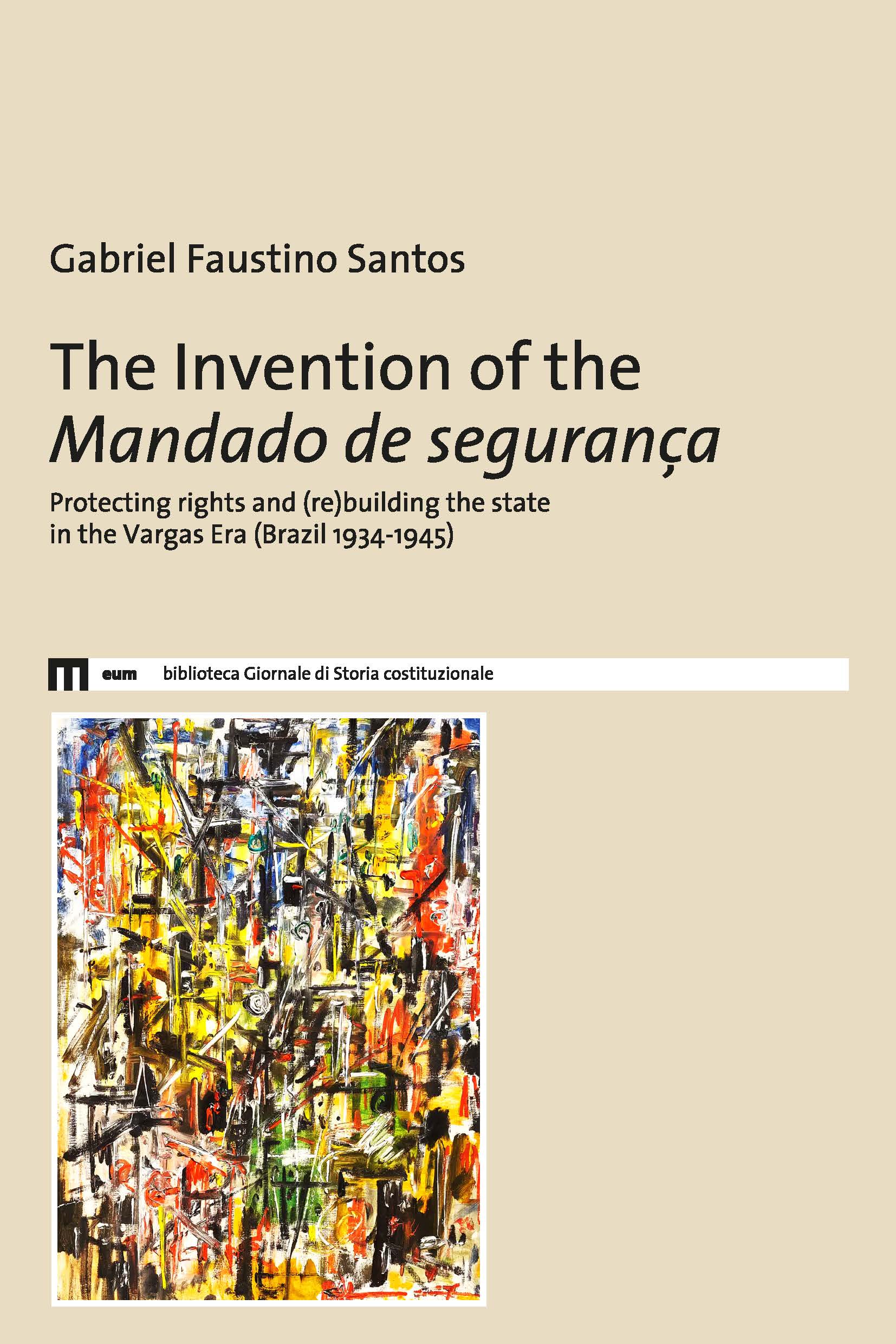The Invention of the Mandado de segurança
Protecting rights and (re)building the state in the Vargas Era (Brazil 1934-1945)
Gabriel Faustino Santos
| Editore: eum edizioni università di macerata | Collana: Biblioteca del Giornale di Storia costituzionale |
| pp. 447 | ISBN: 978-88-6056-873-1 |
| ed. 2023 | |
| Formati: 14x21 | |
| Prezzo: € 18.00 |
The invention ofthe mandado de segurança in 1934 can be interpreted as the end of a long story or the beginning of a new one. As the result of years of debate, the new institute was perceived as an important constitutional innovation of the time that effectively answered an old promise regarding the need to enforce fundamental rights. But, despite the widespread narrative that surrounded the rise of the mandado de segurança, it also represented the final product of a long tradition of theories and practices of Brazilian public law. In fact, it is a valuable key in understanding the (re)emergence of legal principles and concepts that, at their core, favored the public interest. Therefore, in a period of a significant politicaI, sociaI, economic, and legaI transition, the mandado de segurança is a perfect image of the paradox of the Vargas Era, when protecting rights seemed just as important as (re)building the state.
Catalogo
- Ingegneria civile ed Architettura
- Ingegneria industriale e dell'informazione
- Religioni e Teologia
- Scienze agrarie e veterinarie
- Scienze biologiche
- Scienze chimiche
- Scienze della Terra
- Scienze dell'antichità, filologico-letterarie e storico-artistiche
- Scienze economiche e statistiche
- Scienze fisiche
- Scienze giuridiche
- Scienze matematiche e informatiche
- Scienze mediche
- Scienze politiche e sociali
- Scienze storiche, filosofiche, pedagogiche e psicologiche

